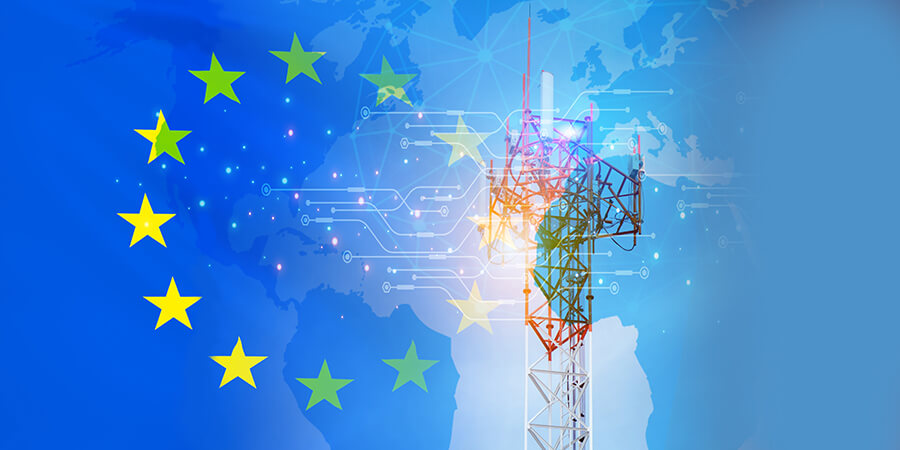European telecom industry leaders are urging EU policymakers to require technology and streaming giants to cover the substantial bandwidth usage they require.
This has yet again sparked the ongoing discussion, with telecom companies asserting their need for additional funds to maintain and upgrade the infrastructure necessary to meet Europe's data demands. They argue that it would be more equitable if companies like Netflix also contributed to these expenses.
"Big tech companies pay today almost nothing for data transport in our networks, far from covering the costs needed to expand networks," stated a letter published by the European Telecommunications Network Operators' Association (ETNO) and signed by 20 CEOs.
According to the consortium, a fair and proportionate contribution from the largest traffic generators — previously identified as Apple, Amazon, Facebook, Microsoft, Google and Netflix — towards the costs of network infrastructure should form the basis of a new approach.
The CEOs, including Orange's Christel Heydemann and Vodafone Group’s Margherita Della Valle, also pointed out that the European Union estimated that new investments worth around 174 billion euros will be required by 2030 to achieve connectivity targets. Unfortunately, the telecom sector is “currently not strong enough to meet that demand.”
On the other hand, tech giants contend that telecom companies already receive revenue from their customers. Meanwhile, digital rights advocates also expressed concerns that compelling web giants to pay could result in a two-tiered internet system.
In February, the European Commission initiated a public consultation on this matter, with results anticipated to be made publicly available by the end of 2023.
The concept of a "fair contribution to telecommunication networks" has stirred controversy within the EU. While earlier this year, the European Parliament expressed its support for the proposal, several countries reportedly opposed imposing such a levy on tech companies in June.
Also Read: Tech Giants to Be ‘Gatekeepers’ Under New DMA Internet Competition Law










